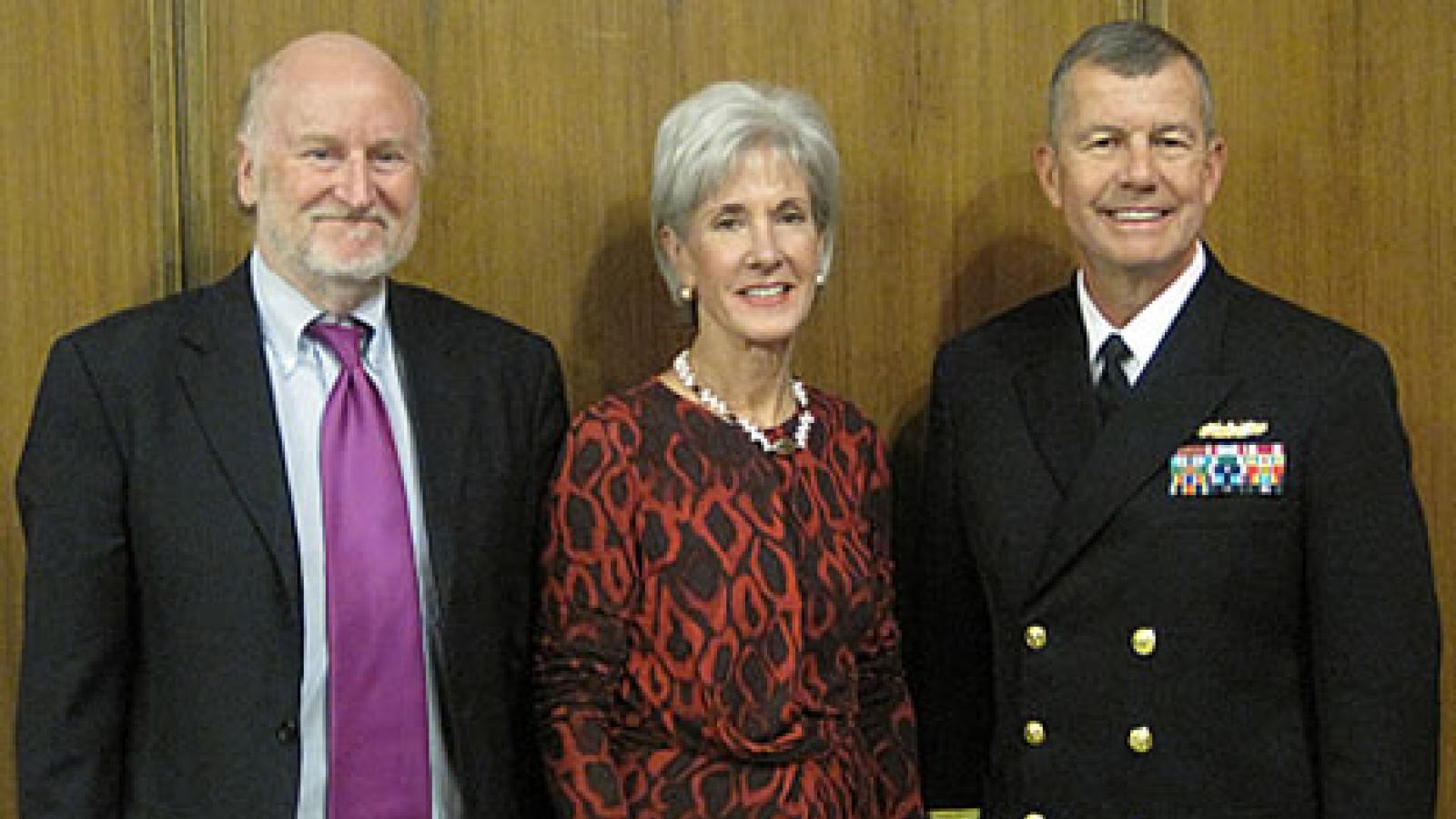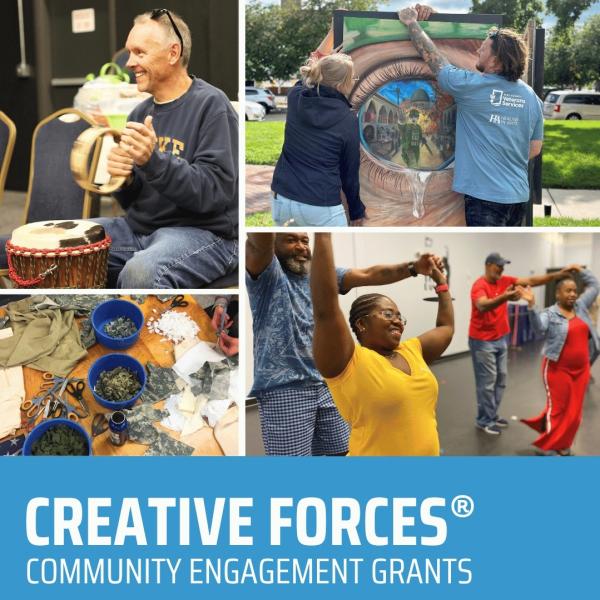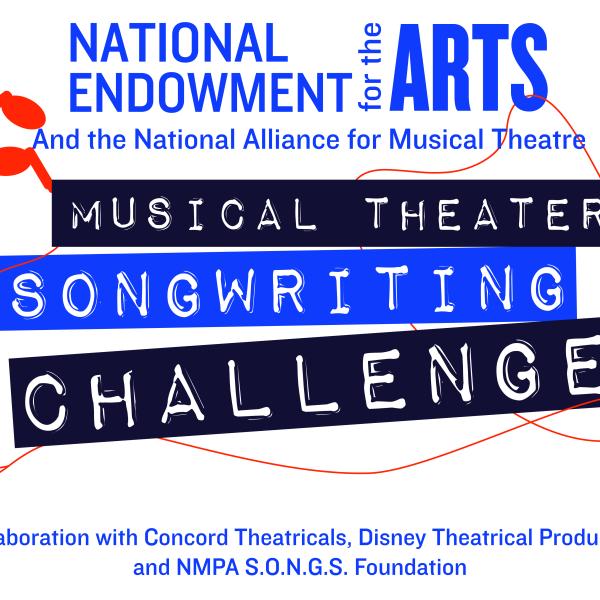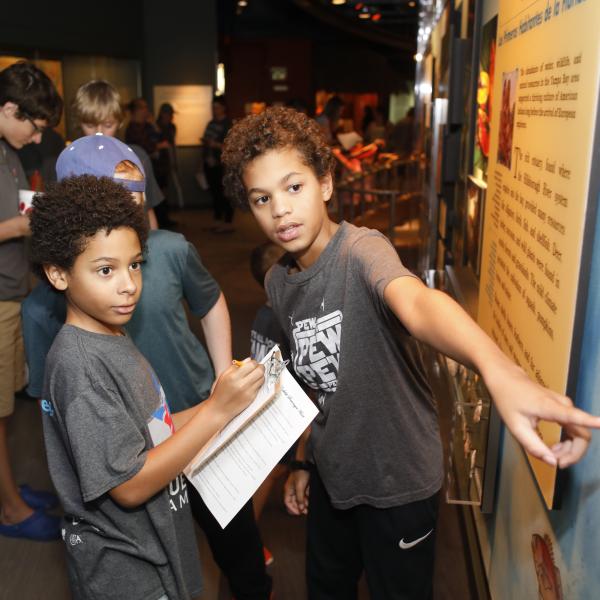NEA Chairman Rocco Landesman Announces New Music Therapy Component of Operation Homecoming Program at Walter Reed National Military Medical Center

The National Endowment for the Arts expands its landmark arts partnership with the U.S. Department of Defense to bring music therapy to patients at Walter Reed National Military Medical Center including patients at the National Intrepid Center of Excellence (NICoE) located on the campus of Walter Reed Bethesda. This new music therapy component of the NEA's Operation Homecoming program reflects the growing use of creative arts therapy programs in healthcare settings. The NEA and Walter Reed have extended their commitment to partner on these efforts through 2015.
"The NEA is proud to join with the U.S. Department of Defense to significantly expand our mutual commitment to investigate how art works to help heal our wounded warriors who have sacrificed so much in service of our country," said NEA Chairman Rocco Landesman. "The NEA is honored that this partnership will help design and test neurologic music therapy programs for our service men and women being treated at Walter Reed."
"The President called on all Cabinet Secretaries to find better ways to provide our military families with the support they deserve," said Kathleen Sebelius, secretary of U.S. Department of Health and Human Services (HHS). "As one example of our work together, Operation Homecoming is providing writing and music therapy to demonstrate how the arts can improve the lives of service men and women suffering from Traumatic Brain Injury and psychological health conditions such as post-traumatic stress, anxiety, and depression."
The expanded Operation Homecoming program will integrate music therapy into treatment plans for patients at Walter Reed Bethesda including patients at the NICoE. The NICoE is a DoD institute dedicated to providing cutting-edge evaluation, treatment planning, research and education for service members and their families dealing with the complex interactions of the signature wounds from the Afghanistan and Iraq wars: Traumatic Brain Injury (TBI) and psychological health conditions.
The new component will focus on Neurologic Music Therapy, which uses science-based music techniques to improve cognitive, sensory, and motor function in patients with neurologic diseases such as TBI, stroke, Alzheimer's, and Parkinson's. Acclaimed music therapist Mia Maegan Morrow is a consultant for Operation Homecoming's music therapy program at the NICoE and Walter Reed Bethesda.
The neurologic music therapy component at the NICoE joins the existing Operation Homecoming creative writing program for wounded warriors which launched in December 2011. Since then, more than 150 active duty military and their family members have taken part in writing workshops in both clinical and non-clinical settings, led by combat veteran and author Ron Capps, with programmatic support from The Writer's Center. Both activities complement a visual arts therapy program for patients, and all of the creative art therapies are integrated with the NICoE's unique array of alternative and conventional clinical treatments for patients.
"Time and time again, troops, their families, military and medical professionals tell us that art can make a difference in the quality of life for troops and their families," said Rear Admiral Alton L. Stocks, Commander of Walter Reed National Military Medical Center. "We are excited to examine those claims through research and practice."
Operation Homecoming is a partnership between the NEA and the Department of Defense. The Boeing Company has supported Operation Homecoming since its inception in 2004, and continues to support Operation Homecoming programs in non-clinical settings at Walter Reed.
The announcement about the additional music therapy was made alongside the Arts & Health in the Military National Roundtable at the John F. Kennedy Center for the Performing Arts, a gathering of military, arts, and healthcare policymakers, and practitioners to advance the use of arts as a treatment method in military clinical and community settings. HHS Secretary Sebelius attended the gathering along with Rear Admiral Stocks and Chairman Landesman.
Operation Homecoming at Walter Reed Bethesda is one facet of the NEA's larger push for more and better research on how the arts help people reach their full potential at all stages of life, including investigations of creative arts therapy in healthcare settings. Another example of the agency's NEA's work in this arena is the NEA Task Force on the Arts and Human Development, a group of 14 federal agencies and departments working together to help fill the research gaps and build a stronger evidence base to inform future policy and practices nationwide. Many public and private organizations -- including the Department of Defense -- are building bridges among arts, healthcare, and research communities, resulting in broader ways of thinking about, defining, treating, and measuring health and well-being.
Operation Homecoming was first created in 2004 by the NEA to help U.S. troops and their families write about their wartime experiences in Afghanistan, Iraq, and stateside. Operation Homecoming is among several programs the NEA has created to bring quality arts programs to the military, veterans, and their families. Other NEA programs for the military have included Blue Star Museums, Great American Voices Military Base Tour; and Shakespeare in American Communities Military Base Tour. The arts and the military is the focus of a recent edition of NEA Arts, the magazine of the National Endowment for the Arts, available at arts.gov.
About the National Endowment for the Arts
The National Endowment for the Arts was established by Congress in 1965 as an independent agency of the federal government. To date, the NEA has awarded more than $4 billion to support artistic excellence, creativity, and innovation for the benefit of individuals and communities. The NEA extends its work through partnerships with state arts agencies, local leaders, other federal agencies, and the philanthropic sector. To join the discussion on how art works, visit the NEA at www.arts.gov.
Contact
Sally Gifford
202.682.5606
giffords@arts.gov




